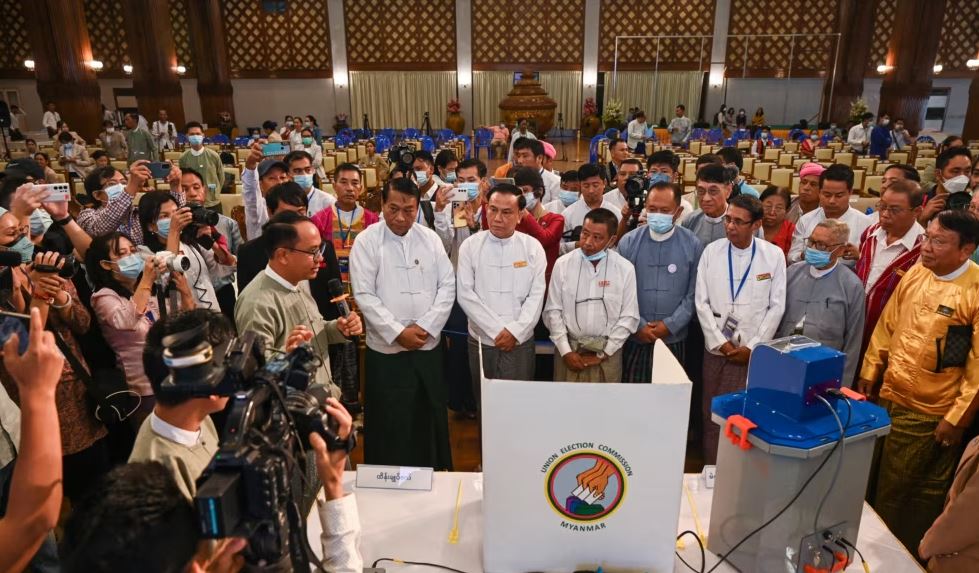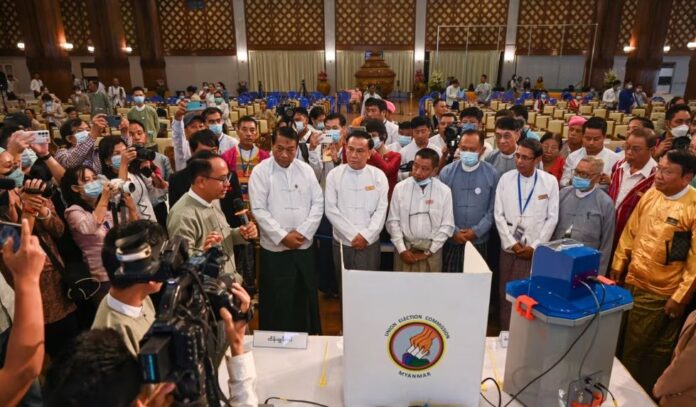Statements from the Mon community indicate that the majority of Mon people are not interested in the election organized by the military-backed election commission.
The commission has announced that the first phase of the election will be held in 102 townships on December 28th, 2025, and the second phase in 100 townships will begin in January 2026.
A young Mon from Kyaikmaraw said that neither the public nor the international community recognizes the upcoming election, and there is no intention to cast votes.

“For the December 2025 election, public interest is at its lowest. Frankly, we don’t feel any excitement. As a young person living in the country, even if there is pressure to vote, there is no party we are genuinely interested in. Even if a party representing the Mon people exists, it’s not like the elections in 2010, 2015, or 2020,” he said.
The Union Election Commission (UEC), established by the military, has set a 60-day campaign period from 6 a.m. on October 28th until December 26th.
According to Nain Than Shwe, spokesperson for the Mon Unity Party (MUP), voters in Mon areas face difficulties to engage in the electoral process, and overall interest in the election is weak.
“There are difficulties with security in some areas, budget and financial issues, and challenges in mobilizing voters. People’s interest is low, so we are trying our best to encourage them to vote, telling them who to vote for, and organizing gatherings to get them to the polling stations,” he said.
On October 19th, the UEC announced a list of confirmed candidates eligible to contest the December election.
Although large-scale in-person campaigning is not observed in Mon areas, local sources report some online campaigning activities.
A young Mon from Kya-in Seikkyi said that public interest is low compared to previous elections, and there is skepticism about the election system. “There are many differences. In previous elections, people could mark their preferred party on paper ballots. Now, with the digital system, there’s uncertainty whether votes for a chosen party actually reach the ballot boxes. There is little confidence in the process,” he said.
Neighboring countries, including China, India, and Thailand, as well as Russia and some ASEAN countries, are reportedly providing support for the election.
In the Mon region, the election system is designed in advance to favor the Union Solidarity and Development Party (USDP), making it difficult for other parties to win, according to a Mon local from Chaungzone Township.
“People are curious about how the military will manipulate the election, but there is no intention to vote. This upcoming election is very different from the 2020 election. There is no strong opposition party; parties like the NLD, SNLD, and NDF have already been sidelined,” he said.
The election commission is working to hold elections in nearly all townships in Mon areas, with political parties including the Mon Unity Party (MUP) and the Pa-O National Development Party competing nationwide.
The military-backed election commission has announced that it will take action against any Mon armed resistance groups or participants who oppose the election.

